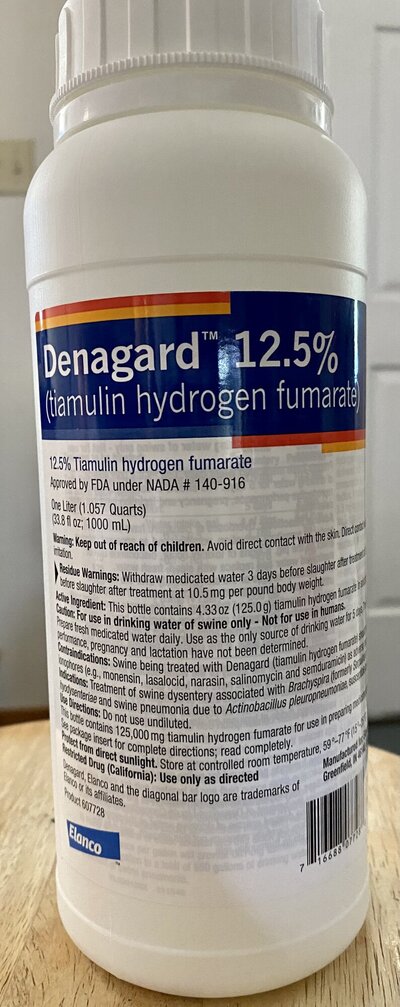WillowMoonWyandottes
Songster
If I’m correct the dosage per gallon of water is 8ml but can I give my chicken a direct dose in her beak instead of putting it in the water? If so what would be the dosage ml per pound? I think my pullet has a respiratory infection but she is the only one having problems. Sent one to my state lab and they said they didn’t have anything serious and they were healthy but this one pullet has had raspy/rattled breathing for a month and a half now. Also heard it tastes bad to them and was wondering if I need to add something to make it taste better, what would that be? The picture below is what I have.
Attachments
Last edited:





